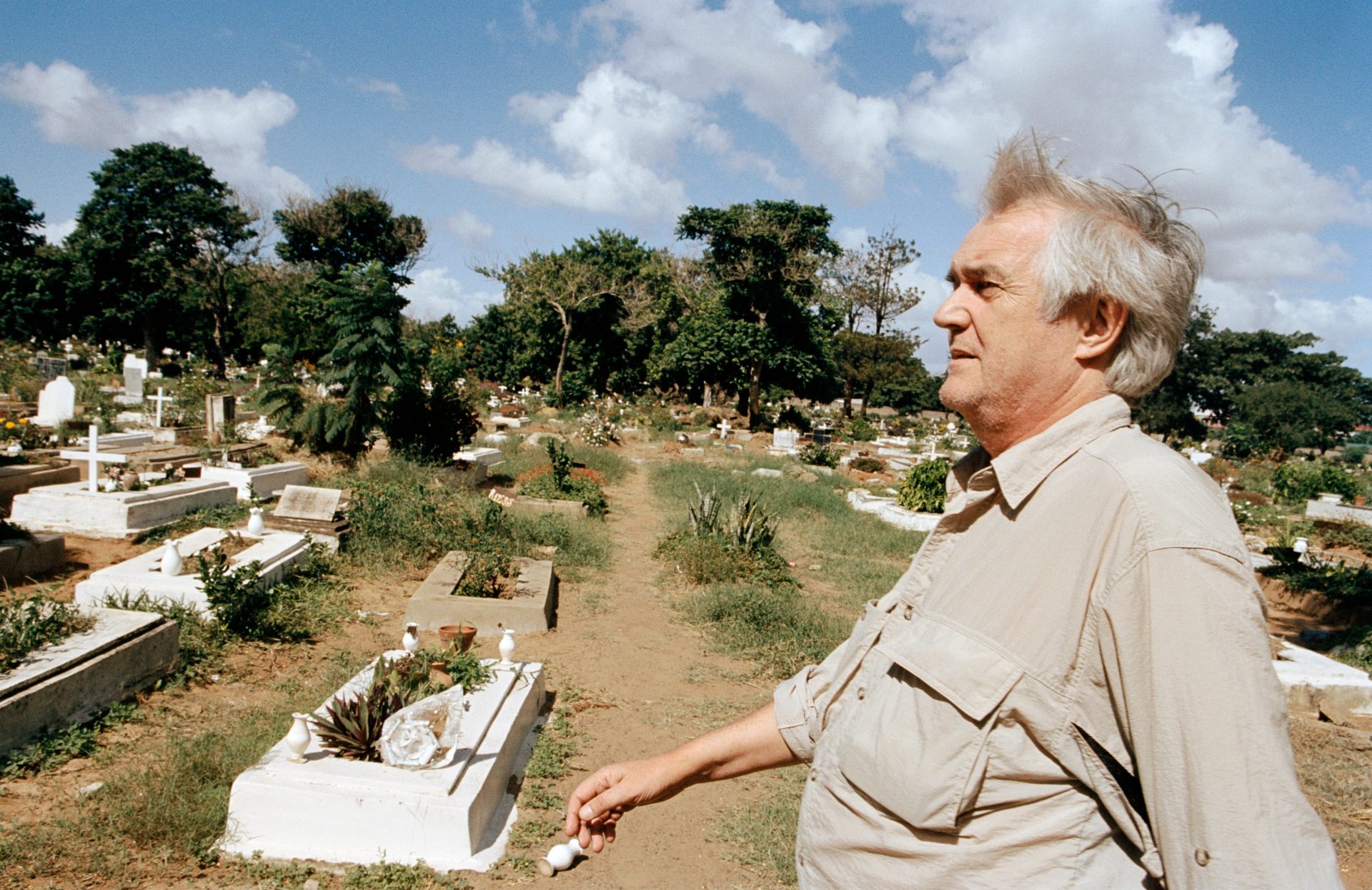Henning Mankell was barely a year old when his mother left, old enough for the void of her absence to be noticeable as he grew older but too young to retain tangible memories. So, to fill the space, he created an imaginary maternal figure of his own. The comfort and protection he found as a result proved invaluable in his psychological development, instilling a deep appreciation of the power of imagination and the good that can come of it. “I work best when imagination is as valuable as reality,” he said. Arming himself against absence as a child gave Mankell a sensitivity to the vulnerable and disadvantaged, while the imagination he’d forged to do it created a hugely successful literary career.
When in 1973 at the age of 25 he published his debut novel Bergsprängaren, which appeared for the first time in English in 2020 as The Rock Blaster, Mankell used the money to fly to Mozambique, a nation that would become his second home and a place where he made a visible difference through his charitable and community work. “I came to Africa with one purpose: I wanted to see the world outside the perspective of European egocentricity,” he wrote in 2011. “I could have chosen Asia or South America. I ended up in Africa because the plane ticket there was cheapest.” He campaigned against landmines and worked tirelessly with Aids charities and sufferers, starting an oral history project for the terminally ill so their lives and stories could be preserved for posterity. In 1986 he established the Teatro Avenida in Maputo and also founded the publishing imprint Leopard Förlag, both projects encouraging literacy and providing the resources and platforms for young actors and playwrights to explore their creativity.
“Africa has taught me that there is so much needless suffering in the world,” he said. “We could stop it tomorrow: to teach every child in the world to read and write would cost no more than we in the west spend on dog food.” Mankell’s work in Mozambique provided a focus for his disenchantment with the injustices he saw everywhere he looked while also helping to satisfy a wanderlust nurtured since his grandmother read him Robinson Crusoe as a boy.
He left school as soon as he could and inspired by the work of Joseph Conrad joined the Swedish merchant marine at 16 hoping to see the world. When after two years he’d voyaged nowhere more exotic than Middlesbrough he settled in Paris in 1966, became part of the city’s bohemian set, honed his political philosophy among the radicals he met and decided on a career as a writer.
Two years later, having been at the heart of the 1968 student uprisings, he returned to Sweden, found a job as a stagehand in a Stockholm theatre and wrote his first play, Nöjesparken, ‘The Amusement Park’, shining a light on Swedish colonial activity in 19th century South America.
The critical eye he cast over his homeland in that first work informed most of Mankell’s subsequent career. In the early 1990s, the insight he gleaned as both a resident of Sweden and a returning emigrant after long spells in Mozambique emerged fully formed via his most famous creation, Ystad police detective Kurt Wallander.
A grumpy, disillusioned, diabetic alcoholic with just enough goodness at his core to fire his desire to catch murderers, Wallander appears in 13 novels and is responsible for the majority of Mankell’s worldwide sales of more than 40 million books.
It was when Mankell returned to Sweden during the late 1980s after a two-year spell in Mozambique that he noticed a significant increase in racism in his homeland along with a tangible decline in the administration of Sweden’s widely-praised welfare state. The first Wallander novel Mördare utan ansikte (‘Faceless Killers’) was published in Sweden in 1991 and begins with an elderly couple being attacked in a remote farmhouse. The husband dies instantly, the wife lives long enough to whisper the word “foreign”, triggering a wave of violent racism as Wallander seeks to solve the crime.
The third book in the series, Den vita lejoninnan, ‘The White Lioness’, was the first translated into English, helping to turn Wallander into an international sensation and triggering the global sensation of Scandinavian noir. Although he was in his forties by the time the first Wallander novel was published Mankell had always been perfectly equipped to write his vivid brand of crime fiction. The son of a lawyer who went on to become a judge – much of Mankell’s childhood was spent in an apartment above the courthouse in Sveg, northern Sweden – he was already well-versed in the structure and rhythms of the legal system. Setting the Wallander novels in Ystad, in the Skåne region in the south of the country, helped to immerse the books in existential world-weariness. The fogs and marshy flatlands were a long way from the bright lights of Stockholm and the bleak, all-pervading eeriness had a particularly Swedish feel reminiscent of Ingmar Bergman in his prime. In 1998 Mankell married Bergman’s daughter Eva.
Wallander was a disappointed man, a heavy drinker, vulnerable to panic attacks and incapable of forming close relationships who abandoned his daughter at a young age, although the pair are later reconciled. The murders he investigated epitomised the slow decline Mankell detected in Swedish society. As well as the racism that appalled him there was rising unemployment and violent crime, corruption, the rigidity of a patriarchy forged in religion and the relentless breakdown of communities and society. “People always leave traces,” he wrote in Den orolige mannen, ‘The Troubled Man’, the last Wallander novel in which the detective begins a slide into dementia. “No person is without a shadow.”
Sweden was the perfect launchpad for Scandinavian noir. The crime writing genre that Mankell hauled onto the international stage, paving the way for Jo Nesbø, Stieg Larsson and the rest, had always been an outlet for the nation’s left wing writers to highlight injustices in a society often held up as one to which European democracies should aspire.
The optimistic activism in which Mankell immersed himself during the 1960s and 1970s, the anti-Vietnam War protests, the anti-apartheid campaign and the Palestinian cause to which he was devoted right until the end of his life – he was on the flotilla that attempted to break through the Gaza blockade in 2010 – had produced a disillusioned generation epitomised by the figure of Kurt Wallander bent beneath the crushing weight of ennui.
Despite the smothering of such youthful optimism, when he died of cancer at the age of 67 Mankell still managed to leave his world a better place than when he arrived.
“The unique thing about life is that you must account for the choices you make,” he said. “You can never take a step back and redo it. It does not mean that I’m finished. Death, when it comes, interferes always in the living things that are going on.”




